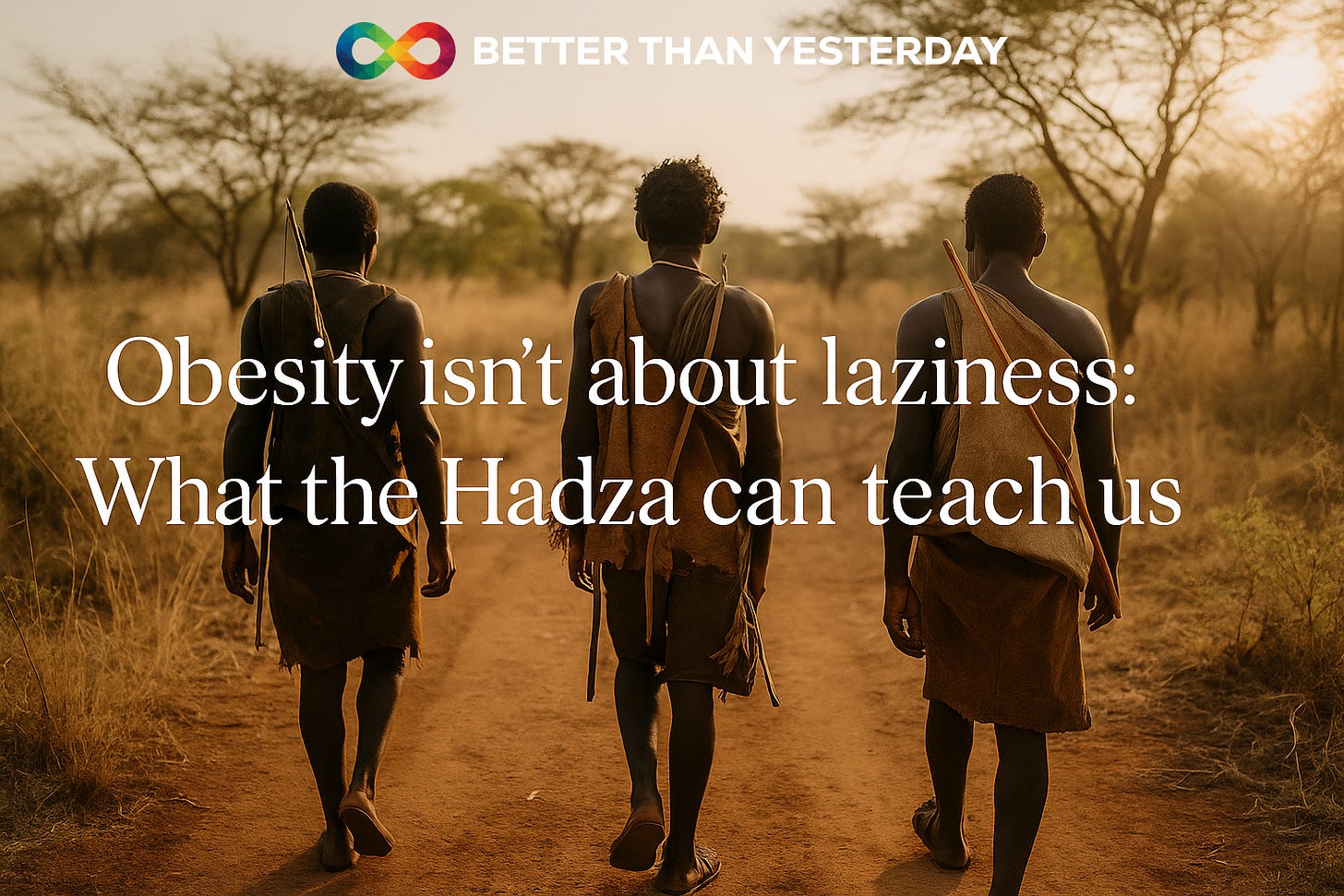Obesity Isn’t About Laziness: What the Hadza Can Teach Us
A landmark study of over 4,200 adults across 34 global populations just rewrote the rules on metabolism and weight gain.
From the highly active Hadza hunter-gatherers in Tanzania to sedentary Westerners, researchers found that people burn roughly the same number of calories per day, regardless of lifestyle or occupation.
The study used doubly labeled water, the gold standard for measuring total daily energy expenditure (TDEE). The results strongly support the “constrained energy expenditure” model: when physical activity increases, the body compensates by reducing energy spent on other functions like immunity, digestion, or reproduction.
🧠 The Metabolic Illusion
The assumption that more movement equals more calories burned, and thus more fat lost, is not supported by this data.
While physical activity offers powerful health benefits (muscle retention, insulin sensitivity, mood regulation), it plays a surprisingly minor role in long-term fat loss.
The primary driver of obesity in industrialized countries?
Diet : particularly the dominance of ultra-processed foods.
🧪 10x More Impact from Diet
Researchers estimated that poor dietary intake contributes ten times more to rising obesity rates than declining physical activity.
Ultra-processed foods are engineered to override satiety, spike insulin, and encourage overeating. Their effects go beyond calories: disrupting the gut microbiome, blunting nutrient signaling, and rewiring reward pathways.
This shifts the conversation away from calorie math and toward metabolic health.
🧬 Biohacking Obesity
To reverse modern weight gain and improve lifespan, the intervention must start at the cellular level, with food, not fitness.
Here’s what the data supports:
🥩 Anchor each meal with 30g+ of protein
Supports satiety, muscle synthesis, and thermogenesis.
🥬 Prioritize unprocessed, low-ingredient foods
Minimizes inflammation and improves nutrient density.
🚶♂️ Walk 8,000–10,000 steps daily
Not to “burn calories” but to support glucose control, lymph flow, and circadian rhythm.
🛌 Sleep 7–9 hours consistently
Sleep loss disrupts ghrelin/leptin signaling, increases appetite, and impairs insulin sensitivity.
💧 Eliminate liquid calories
Beverages like soda, juice, and even oat milk offer energy with no satiety.
🔍 Why This Matters
This study challenges the calorie-focused model of obesity and points to a more nuanced truth:
Modern food environments overwhelm a metabolic system built for scarcity.
The Hadza remain lean not because they “burn more,” but because their diet is unprocessed, nutrient-rich, and naturally regulated by hunger cues: not marketing.
Obesity isn’t a failure of discipline. It’s a failure of design.
If you want real metabolic health, and real longevity, it starts with food quality, not just exercise quantity.



